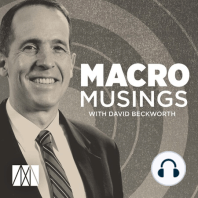57 min listen

Thomas Hoenig on the Federal Reserve and the State of Banking in the US
Thomas Hoenig on the Federal Reserve and the State of Banking in the US
ratings:
Length:
60 minutes
Released:
Aug 26, 2019
Format:
Podcast episode
Description
Thomas Hoenig was vice-chair of the FDIC from 2012-2018 and in the 20 years prior to that he was also president of the Kansas City Federal Reserve Bank. Thomas is currently a distinguished senior fellow at the Mercatus Center at George Mason University where he focuses on the long-term impact of the politicization of financial services, as well as the effects of government granted privileges and market performance. He joins the show today to talk about his career and some of the current issues in banking. David and Thomas also assess the effectiveness of quantitative easing, the advantages and disadvantages of opening up the Fed’s balance sheet to the public, and the debate between establishing an orderly liquidation authority vs a bankruptcy code. Transcript for the episode: https://www.mercatus.org/bridge/podcasts/08262019/thomas-hoenig-federal-reserve-and-state-banking-us Thomas’ Twitter: @tom_hoenig Thomas’ Mercatus profile: https://www.mercatus.org/people/thomas-hoenig Related Links: *"Enormous" Pressure in Next Recession for Wider QE Purchases, Former FOMC Voter Predicts* by Frank Fuhrig https://www.mercatus.org/bridge/commentary/%E2%80%9Cenormous%E2%80%9D-pressure-next-recession-wider-qe-purchases-former-fomc-voter-predicts David’s blog: macromarketmusings.blogspot.com David’s Twitter: @DavidBeckworth
Released:
Aug 26, 2019
Format:
Podcast episode
Titles in the series (100)
10 - Lars Christensen on the Eurozone Crisis and International Monetary Policy: Lars Christensen, an internationally renowned Dan… by Macro Musings with David Beckworth